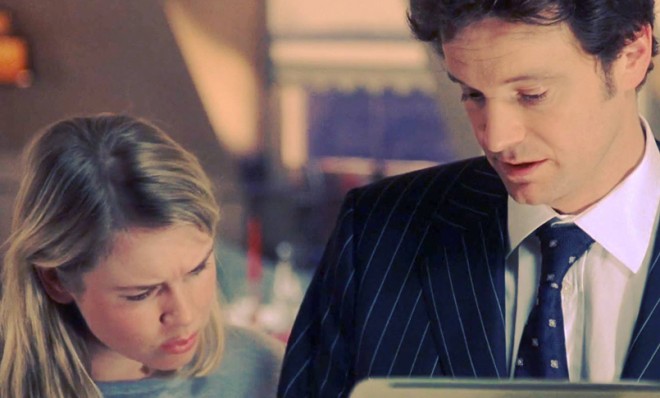Mark Darcy is dead: Why Bridget Jones fans may never forgive Helen Fielding
The death of the beloved romantic lead has produced a lot of broken — and angry — hearts

A free daily email with the biggest news stories of the day – and the best features from TheWeek.com
You are now subscribed
Your newsletter sign-up was successful
While the vast majority of the internet has been coping with the aftermath of the Breaking Bad finale, a far smaller but no less emotional group of fans is reeling from another loss — that of Bridget Jones' Mark Darcy.
In excerpts published in the U.K.'s Sunday Times magazine from Helen Fielding's third and latest installment of the Bridget Jones series, Mad About the Boy, it is revealed that Mark Darcy has been dead five years, leaving Bridget a widow with two children.
For those unacquainted, Mark Darcy is (was) a handsome, stodgy, but ultimately loving lawyer loosely modeled on the Mr. Darcy of Jane Austen's Pride and Prejudice. Delivering a line as memorable to chick-lit fans as "You complete me," he revealed his true feelings to Bridget Jones with, "I like you, very much. Just as you are."
The Week
Escape your echo chamber. Get the facts behind the news, plus analysis from multiple perspectives.

Sign up for The Week's Free Newsletters
From our morning news briefing to a weekly Good News Newsletter, get the best of The Week delivered directly to your inbox.
From our morning news briefing to a weekly Good News Newsletter, get the best of The Week delivered directly to your inbox.
Cue all of the emotions.
Fans did not take the news of his death lightly, to say the least. Twitter expressed a range of responses from shock to horror, as well as some existential crises over love's ability to survive in the modern world. One fan tweeted: "Marc Darcy's death just proves that the idea of true love is well and truly doomed."
But these Bridget-philes are not only devastated — they're pretty darn angry and vocal about it to boot.
In a somewhat unprecedented move for the literary world, fans have taken to Twitter to not only mourn the loss of Darcy, but to attack Helen Fielding for her decision to kill him off. As Tom Phillips at BuzzFeed showcases, people are not holding back. One Darcy-lover went so far as to tweet: "If Mark Darcy is dead then I hate Helen Fielding forever. FOREVER."
A free daily email with the biggest news stories of the day – and the best features from TheWeek.com
Readers eagerly awaiting this third installment, nearly 15 years after the second was published, feel betrayed and even cheated. As Antoinette Bueno at ET Online writes, "Fans have been following Bridget and Mark's journey for two beloved books now (and two insanely popular films), so to kill him off in the third one reads like a seriously bad move just to get Bridget to be single again."
But others think such a drastic cut might have been necessary to save the Bridget Jones series from being too sappy for its own good. Katherine Butler at The Independent writes that when the character Bridget Jones first appeared as a weekly column in that publication, she was "satire and social commentary as insightful as Swift." However, by the time Bridget Jones became an international movie franchise, "she'd become just a slapstick rom-com caricature."
Now that Bridget is returning once again to the single life, with the very real responsibilities of children by her side, she can show us "how much we need satirical fictional heroines to shed light on the absurdities of our condition," writes Butler.
Fans will probably disagree, preferring their literary hero to insightful sarcasm. But one thing is for sure. Even if he is longer with us, readers like Mark Darcy very much. Just the way he is.
Emily Shire is chief researcher for The Week magazine. She has written about pop culture, religion, and women and gender issues at publications including Slate, The Forward, and Jewcy.
-
 Bad Bunny’s Super Bowl: A win for unity
Bad Bunny’s Super Bowl: A win for unityFeature The global superstar's halftime show was a celebration for everyone to enjoy
-
 Book reviews: ‘Bonfire of the Murdochs’ and ‘The Typewriter and the Guillotine’
Book reviews: ‘Bonfire of the Murdochs’ and ‘The Typewriter and the Guillotine’Feature New insights into the Murdoch family’s turmoil and a renowned journalist’s time in pre-World War II Paris
-
 Witkoff and Kushner tackle Ukraine, Iran in Geneva
Witkoff and Kushner tackle Ukraine, Iran in GenevaSpeed Read Steve Witkoff and Jared Kushner held negotiations aimed at securing a nuclear deal with Iran and an end to Russia’s war in Ukraine